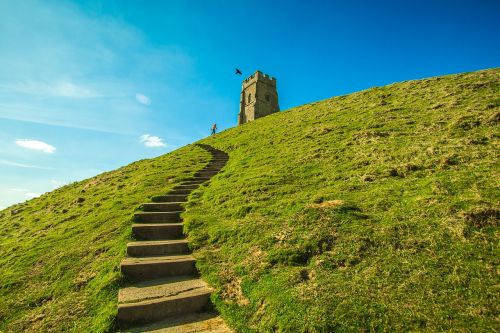Honorable Moss
I am sure this will find you in best of health and happiness. I was asked by respected members of the group about the Celtic festival Lughassad. This festival is a Celtic festival and is being celebrated on 1st of August every year. luginaissatis is the name of this festival for the Celts of Brittney and this is as per the calendar given to me by the Druid elders. I had written an article about it long time back that needs some corrections and also needs to be further detailed.
In this mail I am attaching the same article with little modifications. In India it is celebrated in the month of Ashadh and on the sixth day from the Full Moon. We Hindus are more particular about the moon position and therefore it is on sixth day from the Full moon. I am re-attaching the same article with some corrections but I shall write more in detail later. The festival is called Lughassad in the Celtic countries. It is also called luginaissatis in Brittney. I have also scanned the Hindu calendar month of August of this year and attached with the mail. I had to scan in many parts because of constrains of the size of my scanner. The 1st of August reads “Ashadh Krushna Shashthi “. Ashadh is the month of the Hindu calendar. Shashthi means the sixth day from Full Moon / Dark Moon. “Krushna†means the 15 days cycle of moon from Full Moon to Dark Moon. The 15 days cycle of Moon from New Moon to Full Moon is called “Shukla†The twelve months of Hindu calendar are as follows. This year the month of Ashadh was from 12 Jul 2010 (New Moon) to 10 Aug 2010 (Dark Moon).
This festival is a very important festival for Hindus of Kashmir and also from South.
http://wapedia.mobi/en/Hindu_calendar#2.
These are twelve lunar month names of Hindu Calendar:
- Chaitra
- VaishÄkh
- Jyaishtha
- Ä€shÄdha
- ShrÄvana
- Bhaadra or, BhÄdrapad
- Āshwin
- KÄrtik
- Agrahayana or, MÄrgashÄ«rsha
- Paush
- MÄgh
- PhÄlgun
Dedicated to Celtic Elders
[There is a great divine force that directs me to work and write. The divine force is the blessings of the Celtic Elders. I touch their feet and take their blessings before I begin.]
[Motto: a) Spread the feeling of brotherhood amongst the Celts, Pagans and the Indians b) Celts and Pagans to feel India, their home c) Indians to respect the Celtic and Pagan elders, as Saints and organize their visits to India d) Save the ancient Celtic and Pagan literature and sites]
“Lughnasadh marks the time of fire (grain) harvest, and is named after Lugh, a Celtic deity of light. Summer is still at its height, but the days are shortening and autumn is on its way. This is reflected in the trigram Sun, formed by weakening of the bottom line of Ch’ien. The light (yang) is no longer all-powerful, but it still predominates. Sun has the epithets, penetrating, wind, and wood.â€
Honorable “Philip Carr- Gommâ€
This article is on .the Celtic festival Lughnasadh. It is a Hindu festival too. This is generally celebrated on 1 Aug. As per the Celtic calendar sent to me by the respected Elders from Brittany, the date varies every year and the dates almost coincide with the Hindu Lunar calendar festivals.
(We have common ancestors)
Lughnasadh / luginaissatis
Amongst the four of the major lunar festivals Lughnasadh is third in the cycle and as per the belief it falls on 1st of August. In Brittany it is called Luginaissatis as per their Celtic calendar. It is a Hindu festival too. The name itself is from the Hindu Lunar calendar. I shall give you the full explanation step by step. The festival name can be written as Lugh + n + Asadh and the second name can also be written as Lugi + nai + Ssatis . So we have three words to analyse. Lugh , Asadh and Ssatis.
Let us analyze the first word Lugh.
Lugh- Lugh means God in sanskrit. There are twenty six synonyms to word god in Hindi / Sanskrit and Lugh is one of them. It is also pronounced as Leek or Lekh or Lak. There are Hindu gods with the name Lugh. Lughish (Lugh + Ish ) and also pronounced as Lougkesh, is the Hindu god of creation, also called Brahma and his famous temple is at Pushkar in the state of Rajasthan in India. Within the Hindu trinity of Brahma, Vishnu and Shiva, Brahma is the creator. Similarly Lakshmi: goddess of light, beauty, good fortune and wealth and she is a Hindu mother goddess and she is the wife of God Vishnu. Lakshmi (lak or Leek or Lugh + Shmi). Another Hindu god with Lugh is Indra and called Leekarshabh or (Leek or Lek or lugh + Arshab). Indra, the Indian Zeus, is a grand mythical figure. According to the Vedas (Indian Scripture), Indra is the Ruler of the Hindu Pantheon. He is also known as Sakra (“Powerful”), Vajri (“the Thunderer”), Purandara (“Destroyer of Cities”), Meghavahana (“Rider of the Clouds”), and Swargapati (“the Lord of Heaven”). Therefore Lugh is also a Sanskrit / Hindi word and it means god.
Asadh- This is the name of the month as per the season in Hindu Lunar Calendar. The seasons were also the names of the months in Hindu calendar. Asadh is the name of the month and it is the last stretch of the summer and then begins the rainy season. It is also be the pre monsoon (rainy) season. Most interestingly I found that in India itself the dates of the month of Asadh vary in different parts of the country, as the season varies from South to North, although the festival dates are the same e.g. In Central India the state of Rajasthan the month of Asadh is from 18 Jun to 18 Jul 2008 , in the state of Maharstra the month of Asadh is from 04 Jul to 31 Jul 2008 , as per the Sindhi ( Sindhi community originally from Sindh and presently staying in India) the month of Asadh is form 05 Jul to 02 Aug 2008 and in the state of Kashmir the month of Asadh is in August- September 2008. The Celtic festival Lughnasadh falls within the same month of Asadh as that of Kashmir’s Calendar. (The young and beautiful Druid girl, I met from Brittney, once told me that she visited Kashmir and she found that the architecture of the Kashmir houses is similar to houses in Brittney in France, this needs to be studied in detail). So Asadh is the season which is pre monsoon, end of summer and beginning of rains in India.
Ssatis- This I have analyzed from the Kashmir’s Koshur calendar. If you see the date of the celebration of the festival Lughnasadh / Luginaissatis, it falls on 10th of Aug 2008 as per the Celtic calendar of Brittney. The festival as per the Kashmir Koshur calendar is Kumar Shashthi. This festival is celebrated in India by many other names like Kumar Shashthi, Kalki Jayanti. We shall first concentrate on the word Ssatis. Shashthi and Ssatis sounds similar and this means sixth day after the New Moon(Please read Full Moon). So this festival is celebrated always on the sixth day after the new moon. Actually it is the position of the moon and compared at different parts of the world and therefore the day may vary depending on the position of the moon. In other parts of India it is celebrated on fifth day from the New Moon(Full Moon). This is where the importance of the Stonehenge comes, where the Celts were able to find the exact position of the Sun and the Moon in different parts of the world, where ever they went, as they were the most learned. (Stonehenge: Is the most ancient worship site of Celts and it should be the first amongst the Seven Wonders of the World). You will find similar instruments of astrological interest at the Astrological Laboratories at Jaipur, Delhi and Ujjain built by the Late King of Jaipur Sawai Jai Singh. If we analyze the days of this festival as per the Celtic calendar (although I need to study more in detail) it is interesting to note the day of celebration
Therefore this festival is of God (Lugh) in the month of Asadh / Ashad and on the sixth day from the New Moon(Full Moon). The actual day of the celebration varies as per the Celtic calendar as well as Hindu Lunar calendar from five to eight days after the New Moon(Full Moon)..
How Indians celebrate this festival:
Kumar Shashthi: God Kumar the elder (younger) son of Lord Shiva and also called Murugan in Southern India. There is a very interesting way of celebrating this festival by the Hindu community of Kashmir, especially by the ladies.
http://en.wikipedia.org/wiki/Muruga
Kalki Jayant: The future incarnation of the God and the Hindu mythology predicts a future incarnation of god as Kalki and celebrate this festival as Kalki Jayanti. There are temples in India to worship the future incarnation of the god. There is beautiful temple of Kalki at Jaipur where I live and was constructed by the Late King Jai Singh.
www.indiaprofile.com/monuments-temples/kalkitemple.htm
In case any of the members have more quarried, I shall too happy to send the details.
With best regards
Sincerely Yours
Surendra N. Mathur



